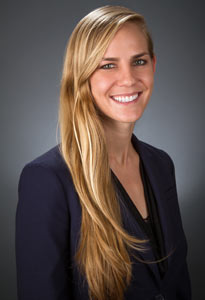This article is part of the Professional Advisor Insights series.
As you create or revise your estate plan it is important that your core values are clearly represented in your planning documents. Whether that be education, charitable intent, or the security of your survivors, the objectives should be covered by both the legal structure and communication of intent to beneficiaries.
For those clients with charitable goals, the use of a Donor Advised Fund (DAF) can add efficiency to your estate plan and be an excellent tool to begin a conversation with your heirs.
- Consider naming the DAF in your planning documents instead of individual charities. As your charitable goals grow and evolve over time you can quickly and easily edit the ultimate beneficiaries on your DAF, avoiding costly edits to your estate planning documents.
- You may also leverage the key advisors and resources offered via the DAF to assess your charitable objectives, research gifting opportunities, and facilitate conversations with 501c3 organizations.
- The DAF can facilitate a charitable way of life where giving back to your community via donations of not only assets but also time becomes a lifelong value for your family.
In our experience the DAF may also serve as a tool to begin a conversation with your heirs regarding your legacy, values, and the roles assigned in your estate plan.
Beginning this conversation before significant events or health concerns allows communication and discussion with clarity and emotional calm. Family meetings regarding charitable giving are a creative way to facilitate teamwork, brainstorming, and decision making amongst family members.
In addition to charitable bequests, the primary objective of most individuals is to ensure your spouse or loved ones are sufficiently cared for financially if you should pass. Often we see clients wishing to bequest assets at their passing, leaving the remainder to their spouse. This poses the big question:
Can you achieve your wishes with your current mix of real and investible assets?
To answer this question, we recommend you work with your financial advisor to create a detailed financial plan with various “what if” scenarios. The financial plan is a dynamic tool that can be updated as your asset mix changes and grows, or your wishes inevitably change.
A comprehensive plan should address:
- To whom would you like to bequest assets?
- What amount would you like to bequest? Specific real assets, dollars or percentage of estate?
- What is the most efficient way, tax-wise, to bequest? Does it make sense to gift annually over time or a lump sum?
- Have you left sufficient assets for your spouse or children to sustain their financial needs?
We encourage you to work with your team of financial professionals, such as your advisor, estate attorney and tax professional, to address your wishes and comprehensively plan for your legacy.
** The information provided should not be interpreted as a recommendation, no aspects of your individual financial situation were considered. Always consult a financial professional before implementing any strategies derived from the information above. For further disclosures visit: http://www.weatherlyassetmgt.com/adv/.
Learn More About Donor Advised Funds
This article was written with help from Kelli Ruby, CFP®.
About Ashley Copp, CFA




